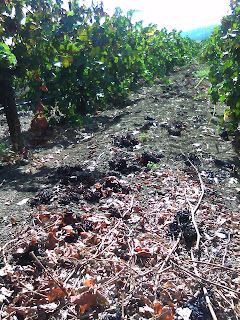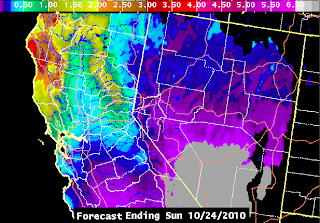Have you noticed how nobody "makes" anything anymore?
Take a look at the picture of Heinz Ketchup, and pay particular attention to the "Grown Not Made*" slogan below the tomato:
Compare these two statements:
"Wine is made in the vineyard"
"Ketchup is grown, not made"
Say, where in either of those statements is there room for the person who takes the ripe fruit and processes it into the end product that graces your tables? I can see an argument for the farmer being present in either case, but not anyone else, and this is not right.
Originally I had contemplated posting on the "Death of the Rock Star Winemakers", a breed which has declined over the past 5~7 years. Sure, there are still many big names out there, but the frequency you used to hear about all but the top hoity-toity "rock stars" has all but died off. And while I feel this is still a valid topic I might get around to in the future, one of the reasons winemakers roles are being downplayed actually eclipses the topic completely. But I do see the point, after all who needs a winemaker if the fruit has done all the work already?
I was going to start by mentioning how the last few years have had more involvement from owners, with winemakers public exposure as "rock stars" diminishing. The main reasons were the need of the owners to make sure that if/when a winemaker left their brand, that the "loyal" following that had migrated there with them didn't then leave. But I think the real reason is that winemakers as a whole are being displaced by the rush back to authenticity and naturalness - by the need to be greener than the next guy - even to the point that we remove ourselves from the equation entirely...and I mean ALL of ourselves, not just winemakers!
And that is why something as common and kitsch as ketchup is now modeling itself as having been dropped into the bottle by Mother Nature herself, without any interference from mankind at all!
The "authenticity" debate maximizes value of non-intervention while minimizing role of the winemaker and cellar staff. This also allows the owners of the brand to maintain the focus of the trade upon what THEIR vision is, and not that of the winemaker (who was making sure the fruit was harvested properly, fermented correctly, then blended, filtered and bottled correctly). We see the people who do all the heavy lifting get the shaft in the PR/Media, while the brand continues forward as an unblemished rose or virgin snowbank, neither of which had been contaminated by the Human hand.
But WE ARE part of Nature...and we DO need to make decisions about how fruit is handled, and what the final taste should be...so why can't we acknowledge that?
I'll acknowledge here that we are the only species which has developed the earth (for both good and ill) to the extent it's been changed...
But why is it that Mankind isn't allowed to "make" wines anymore? Why is it preferable that "we" haven't made anything? Why does "manipulate", which foremost means "to handle, manage, or use, especially with skill in some process of treatment or performance", get used in nothing more than its negative connotations when referring to foodstuffs - and wines in particular? Certainly there are reasons people have gone this route, and there have been numerous times in the past that fraud has occurred - and no doubt it will happen again in the future, and not just with the highest priced bottles...but I fear we've gone a bit overboard in our reaction. Listen carefully to all the winery representatives talk up their wines at the next big tasting you go to. Likely that the majority of what you hear will be about how fantastic the vineyards are and how "the wine is made in the vineyard"...
I know many people who read this blog will have gotten tired of hearing this explanation, but much of this is rooted in the 17th century Romanticism and the back-to-nature movement it spawned. However, it now goes to lengths that dismiss many natural treatments which were in play back then as well as now: isinglass, egg whites, milk protein (casein) are all now somewhat vilified in the popular wine press as "manipulation" (only negative connotation).
Filtration, too, is a victim of the authenticity drive, and is spun by many producers as a evil process which robs the wine of fruitiness, structure, or both. Frankly I don't let anything I work on go out the door without filtration - it's your last chance to secure the wine from subsequent spoilage of microbes present in the wine. And that means better consistency for the consumer, which is never a bad thing. Does filtration diminish your wines somehow? Not in my experience. But I do take good care to educate all the staff on how to do it properly, as its when its done wrong that you can screw up your wine. If everyone is vigilant and well versed on how to get it done, then there shouldn't be any problem - though I'll acknowledge that there's quite a spectrum of opinion on this subject, and you'll no doubt hear from well educated people on the other side of that argument as well.
They'll have different experiences, and I can respect that and their different opinions here.
But I still don't think you can separate Man from Wine.
Wine just doesn't exist without willfull interference from mankind, any less than ketchup could exist without mankind. Raise a glass in honor of your favorite cellar, and remember ALL the people it takes to bring that product to your table - from the vineyard through to the grocery store.Labels: authentic, farming, marketing, organic, sustainable, terroir


















